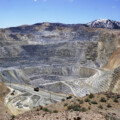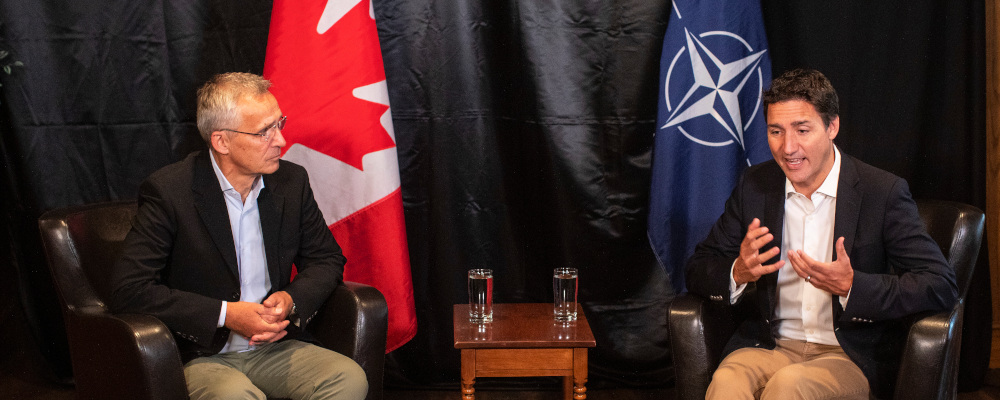In light of the weekend’s shocking developments in Russia, U.S. President Joe Biden was reported to have met with America’s major military allies including France, Germany and the United Kingdom. Canada was conspicuously absent from the high-level meeting. It seemed more than a coincidence therefore that at roughly the same time Foreign Affairs Minister Melanie Joly openly mused in a wide-ranging television interview that we need to “increase our influence” around the world.
Yet Canada’s lack of global influence—including with our key allies—isn’t too difficult to understand. It stems from the government’s failure to invest in the country’s military and in turn the globe’s collective security. This ought to be a key target of criticism of the government for Pierre Poilievre and the Conservatives. It speaks to the willful neglect of a core federal responsibility in a moment of growing geopolitical threats. Yet the Official Opposition has been mostly silent.
The Canadian government’s waning global influence can be linked to a Washington Post article in mid-April based on one of the documents leaked by a Massachusetts Air Nation Guard enlisted man. “Trudeau told NATO officials that Canada will never reach 2 percent defence spending,” the Post said in its story on April 19. The document was apparently based on “human sources,” and it was marked that it was for U.S. eyes only. The date of the document was obscured, but it did contain references to events in February 2023.
Written in the Pentagon, the leaked assessment noted that Canada’s tanks “require extensive maintenance and lack spare parts,” with one armoured regiment having only nine of 40 fully or partly operational. The RCAF, it went on, lacks half the pilots it needs, procurement decisions are “politically motivated,” and the Canadian Armed Forces top brass “perceive that politicians do not care about supporting them and that senior politicians publicly misrepresent defence spending for political gain.” The document added that NATO allies were concerned with Canada’s military weakness.
There was nothing in the leaked document that those who follow Canadian defence matters did not know, but all would have been surprised that Prime Minister Trudeau could be foolish enough to admit that the nation would not meet the pledge to reach 2 percent of GDP it had made a decade before. NATO estimates Canada’s current defence spending at 1.29 percent, a figure that includes spending on veterans and other defence-related matters. The actual spending on the military is thus certainly below 1.2 percent.
The Conference of Defence Associations Institute promptly released a letter signed by more than sixty former ministers, senior security officials and military officers, and even Beverley McLachlin, the former Chief Justice of the Supreme Court. “There is no more important responsibility for the federal government than protecting Canadians against all threats—foreign and domestic,” said the letter. “Now is the time to fully discharge the commitments we have made to our allies and partners in sharing the burden of the collective security, commitments which are essential to safeguard our peace, prosperity and way of life.”
In response, Trudeau was almost insulting: “It’s really important for people in these [defence] industries to advocate [but] Governments are challenged with a whole bunch of priorities that we have to invest in and get the balance right on.”
Just another group of lobbyists, in other words. Why worry, the message was, the Americans will defend us.
A few weeks later Nanos released details of its polling on Canadian attitudes to an increase in defence spending, the results providing a clear indication that Trudeau’s comments in the leaked document and in the response to the joint letter had had substantial effect. Almost two-thirds of Canadians (64 percent) said Canada should meet its 2 percent commitment to NATO; every region, including Quebec for once, was in agreement. Nearly 70 percent were concerned or somewhat concerned that the CAF’s operational disabilities were causing tension with other NATO allies and defence partners.
The government simply shrugged. Defence Minister Anand read the usual boilerplate statements in the House of Commons that glossed over the long list of overseas commitments and military equipment the government was said to be acquiring—someday. It was as if the world was the same as it was when the Cold War ended more than thirty years ago.
Obviously, this was manna from heaven for the Conservatives, a perfect issue to exploit. Except there was nothing, only a token response. The shadow defence minister, James Bezan, issued a brief press release and asked a question or two in Parliament. There was no outrage, no demand for an emergency debate and, more significantly, nothing from the leader of the opposition.
The Trudeau comment, the joint letter, and the Nanos polling results might have been expected to unleash one of Pierre Poilievre’s vitriolic and effective tirades against the Liberal government’s incompetence and its neglect of the country’s security. Nothing. It seems that Canadian defence and the nation’s relations with its allies are almost as unimportant to the Tories as they are to the Liberals.

Why? Stephen Harper’s government had been very supportive of the CAF during the early years of the Afghan war but, once casualties began to increase and public support dwindled, the Harper government seemingly lost interest. The Trudeau government clearly had other priorities, and the Tories appear to have decided there was little to gain from flogging a dead horse. Not even the Russian invasion of Ukraine and the expansionist aims of the Beijing regime seemed to spur the Tories to press for more to be spent on defence.
Yes, Erin O’Toole who led the party in the 2021 election was a former RCAF officer and might have made defence a priority, but he was soon gone. If he has any interest in fixing the Canadian military, Poilievre has thus far shown no signs of this.
The NDP won’t do anything to deal with the CAF’s problems; the Bloc doesn’t care; and the Trudeau government dismisses those who worry about the defence of Canada as merely another lobby group.
There is an opportunity here for the Conservatives to stake out a firm position, one that differentiates them from the other parties, one that today has the support of two-thirds of Canadians all across the nation, and, as the weekend’s events remind us, one that is timely, relevant, and key to the country’s interests. Why won’t they act on it?
Recommended for You

Need to Know: Mark Carney’s digital services tax disaster

Sean Speer: Investing in critical minerals isn’t just good business, it’s a national security imperative

Theo Argitis: Carney is dismantling Trudeau’s tax legacy. How will he pay for his plan?

‘They’re voting with their eyeballs’: Sean Speer on the revealed preferences of Canadian news consumers



